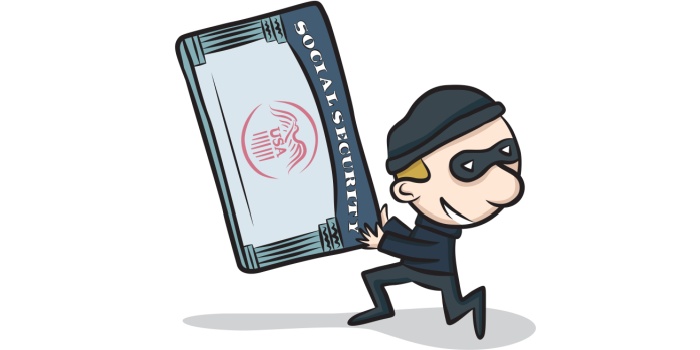Every year, thousands of retirees fall victim to Social Security scams, losing millions of dollars in the process. According to the Federal Trade Commission (FTC), in the past year alone Social Security fraud cost retirees an estimated $148 million, highlighting the need to stay informed and take steps to avoid these costly traps.
These scams don’t just cause financial devastation – they create lasting emotional trauma and undermine the security that Social Security benefits are meant to provide.
For retirees who rely on Social Security benefits as a key part of their income, this is an issue that can’t be ignored. This guide will help you understand the most common Social Security scams, the red flags to watch for, and, most importantly, how to avoid Social Security scams and protect your benefits.
Key Takeaways
- Social Security scams are on the rise — costing retirees millions.
- Watch for red flags: threats, urgent calls, fake benefit promises.
- The SSA will never call or text asking for personal info or money.
- Freeze your credit and verify suspicious contact through SSA.gov.
- Report scams immediately and spread awareness to help others avoid fraud.
Why Social Security Scams Are a Growing Threat
There’s no question: scams targeting Social Security recipients are on the rise.
Here’s why:
- Scammers follow the money. With over 67 million Americans receiving Social Security benefits, scammers see a prime target.
- Fear tactics work. The threat of losing benefits creates urgency and panic, making people more vulnerable to fraud.
- Scams are getting smarter. Fraudsters are now using sophisticated tactics like spoofed caller IDs and professional-looking emails to impersonate official agencies.
In fact, the Social Security Administration (SSA) has warned the public about increasing reports of scammers falsely claiming issues with recipients’ Social Security numbers, accounts, or benefits — putting their ability to cover critical expenses in retirement at risk.
The Most Common Social Security Scams
Being familiar with how these scams work is your first line of defense. Let’s look at the most common schemes targeting retirees.
- The “Suspended Social Security Number” Scam – Scammers claim your Social Security number has been suspended due to suspicious activity. They threaten immediate arrest unless you provide personal information or pay a fee to “reactivate” your number. Spoiler: Social Security numbers can’t be suspended.
- Fake SSA Callers Requesting Personal Information – You receive a call from someone claiming to be from the SSA, asking for your Social Security number, bank details, or other sensitive information to “resolve an issue” with your account. They may even use spoofed caller ID to look legitimate.
- Phishing Emails and Fake SSA Websites – Scammers send emails that look like official SSA correspondence, complete with logos and convincing language. They’ll ask you to click links or download attachments — both of which could lead to identity theft.
- Benefit Increase or Correction Scam – Fraudsters promise they can boost your benefits for a fee or need to “correct” an error in your records. They might even claim you’re entitled to back payments.
- Overpayment Scams – Calls claiming you’ve been overpaid benefits and must return the money immediately or face penalties.
According to SSA data, impersonation calls have increased by 38% since 2023, with scammers now using sophisticated voice cloning technology to sound more convincing.
Red Flags: How to Spot a Social Security Scam
Recognizing the warning signs can help you avoid becoming a victim. Be immediately suspicious if you get:
- Unsolicited contact: SSA rarely initiates contact by phone, text, or email.
- Threats of arrest or legal action: Legitimate agencies will never threaten you with arrest.
- Requests for payment: Scammers often demand payments via gift cards, wire transfers, or cryptocurrency.
- Errors in communication: Misspellings, awkward grammar, or odd formatting in emails.
- Spoofed caller ID: Just because it says “Social Security Administration” doesn’t mean it’s real.
- Promises of Benefit Increases: Unexpected calls about benefit increases requiring verification are almost always scams. The SSA calculates benefit increases automatically and doesn’t need you to “apply” for them.
- Pressured into providing sensitive information: Creating a false sense of urgency is a classic scam tactic. The real SSA gives you time to ask questions and verify information — don’t let fear or Social Security myths cloud your judgment.
💡 Pro Tip: The SSA will never ask for personal information or payments over the phone.
How to Protect Yourself Against Social Security Scams
Here’s how to avoid Social Security scams:
- Know how the SSA communicates: The SSA typically contacts people by mail delivered by the U.S. Postal Service. For matters requiring immediate attention, they may call, but only after sending a letter first. They rarely send emails and never send text messages about benefits.
- Safeguard your personal information: Legitimate SSA representatives will never request your full Social Security number (they already have it), demand payment over the phone, or ask for credit card numbers or banking information. They also won’t ask for your account passwords.
- Verify before you trust: If you receive a suspicious call or email, you can avoid falling victim to a scam by verifying it independently by calling the official SSA phone number at 1-800-772-1213 or checking directly at the ssa.gov website.
- Don’t return calls to unknown numbers: If you receive a suspicious voicemail claiming to be from the SSA, don’t call the number provided. Instead, call the official SSA number directly.
- Consider a credit freeze: If you believe your personal information has been compromised, placing a credit freeze with the major credit bureaus can prevent scammers from opening accounts in your name. In fact, even if you haven’t been targeted, it’s generally a smart and standard practice to help safeguard your credit.
- Report suspicious activity: Report scams to the SSA’s Office of Inspector General at oig.ssa.gov or the FTC at reportfraud.ftc.gov or call 1-877-FTC-HELP (1-877-382-4357). You can also file a police report if you’ve lost money so that you can dispute fraudulent charges.
- Educate friends and family: Spread the word to help protect loved ones from Social Security fraud. Many scams succeed because people simply aren’t aware.
What to Do If You Suspect or Fall Victim to a Scam
If you think you’ve been targeted — or worse, fallen victim — take action immediately.
- Contact the SSA. Call 1-800-772-1213 to report the incident.
- Report identity theft. Use IdentityTheft.gov for step-by-step guidance.
- Place a fraud alert on your credit. Contact one of the major credit bureaus.
- Monitor your accounts. Regularly check your bank and SSA account statements for unusual activity.
- Stay vigilant. Continue to monitor and educate yourself to prevent future scams.
Remember: The sooner you act, the better your chances of minimizing damage.
Closing: Stay Vigilant, Stay Protected
Your Social Security benefits are a vital part of your retirement income — and they’re worth protecting. Scammers are getting smarter, but with awareness and caution, you can outsmart them.
Keep this quick checklist in mind:
- Don’t trust unsolicited calls or emails.
- Never share personal information over the phone.
- Verify any suspicious claims directly with SSA.
- Report scams promptly to help prevent others from becoming victims.
Staying informed is your best defense.
Wednesdays 2:00 pm ET
Webinar: New Rules of Retirement Income Planning
Retirement has changed. Are you prepared? Learn how to build lasting and reliable income.
Reserve My Spot
Frequently Asked Questions
How can I prevent Social Security scams?
Stay informed about common scam tactics, don’t share personal information, verify any suspicious contact, and report scams promptly. Freezing your credit and monitoring your financial accounts can also help prevent identity theft.
Can your Social Security number really be suspended?
No. Your Social Security number cannot be suspended, revoked, or deactivated, no matter what a scammer claims. Anyone threatening suspension or legal action is not a legitimate SSA representative.
Are Social Security benefits taxable?
Yes — in some cases. Up to 85% of your Social Security benefits may be subject to federal income tax, depending on your total income. However, this has nothing to do with scam calls about benefit overpayments or tax penalties.

